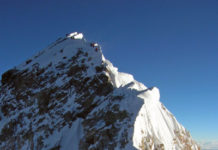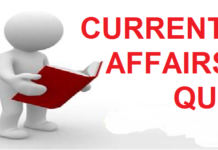Pakistan in turmoil: On the Pakistan elections and results
Instability will follow any attempt to subvert the mandate for Imran Khan
This does not mean that the PTI, whose independent candidates form the largest bloc, would be able to form the next government. When it was evident that no bloc had an absolute majority, Nawaz Sharif called on every party, barring the PTI, to form a unity government. With Army Chief Gen. Asim Munir backing Mr. Sharif’s call, what followed was an in-principle agreement between the PML-N and the PPP “to work together for political stability”. All these developments point to political manoeuvring aimed at stitching together a unity government that will keep the PTI and Mr. Khan out of power. The independents could also come under pressure to switch to the coalition parties. The PTI, which has already alleged electoral irregularities, has called for street protests, triggering memories of the widespread clashes in May 2023 after Mr. Khan’s arrest. The military may have wanted to turn the page of Mr. Khan’s challenge and create a new political reality through the electoral process, but the results have underscored his popularity and public anger towards the establishment. For a long-term solution, the generals should make peace with Mr. Khan and allow the spirit of the results to prevail — an unlikely outcome. As political parties that finished second and third are moving ahead with their plans with blessings from the establishment, public discontent and distrust would remain the unresolved issues. With the PTI’s challenge from the streets, Pakistan could face another cycle of instability and chaos.

















Pakistan’s elections, on February 8, were not held on a level-playing field. Former Prime Minister Imran Khan, arguably the most popular politician, has been in jail since May 2023, facing multiple cases and serving convictions. His party, the Pakistan Tehreek-e-Insaf (PTI), was barred from using its symbol on the ballot paper, forcing it to field independent candidates. Many of its leaders were also in jail or on the run, while others were forced to quit politics or defect to another party. What Pakistan saw in the run-up to the elections was a systematic effort by powerful quarters to dismantle Mr. Khan’s political vehicle. Pakistan Muslim League-N (PML-N) leader Nawaz Sharif, once the nemesis of the army, who returned from exile in London, led his party’s campaign with the establishment’s blessings. But if the generals thought these measures would destroy the PTI’s political leverage and catapult their favourites to power, they were proven wrong by voters. Independents won 101 of the 265 seats (93 went to PTI-linked candidates), the PML-N secured 75 seats while the Pakistan People’s Party (PPP) won 54, and the Karachi-based Muttahida Qaumi Movement-Pakistan took 17. To form a government, 134 seats are needed.